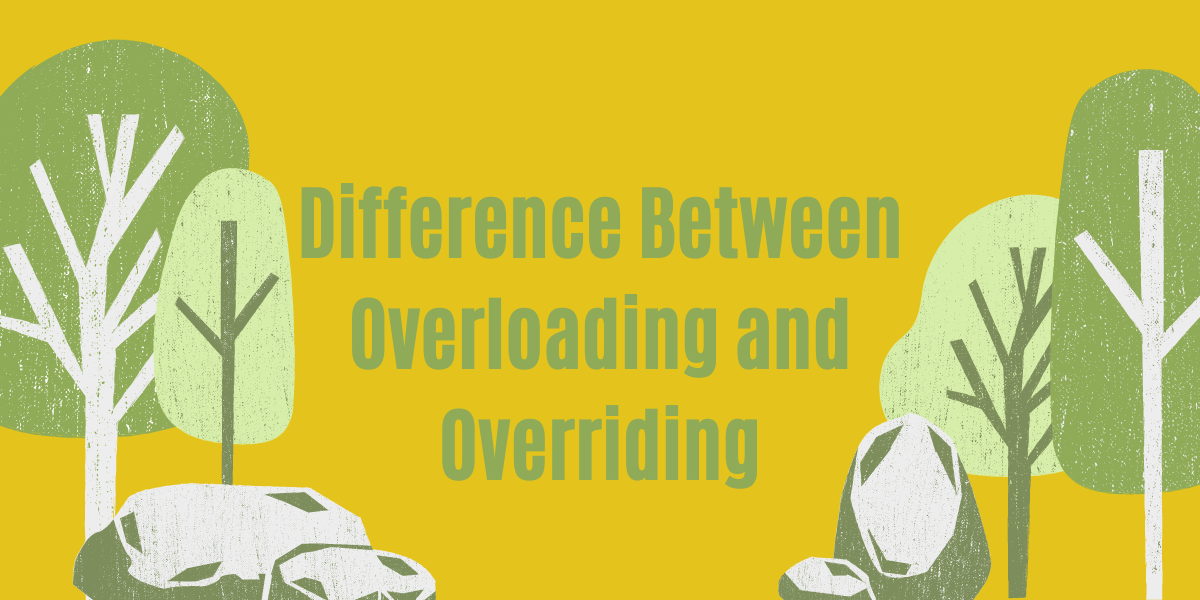The main difference between overloading and overriding is when Child classes have the same name and different parameters to represent Overloading and when Child Classes have the name and parameters the same then it represents Overriding.
Let’s take more into this topic.
What is the Difference Between Overloading and Overriding
Overloading and Overriding are concepts in OOPs or object-oriented programming that are used to improve the readability and reusability of the programs.
Method Overloading
When two or more methods in the same class have the same name but different parameters then this mechanism is called Overloading or Method Overloading.
This method is used for increasing the readability of the program. Inheritance may or may not be required in case of Method Overloading. Method Overloading is a Compile time polymorphism
Method Overriding
When the method signature i.e name and parameters are the same in the superclass and the child class then this mechanism is called Overriding or Method Overriding.
This method is used to provide the implementation of the method that is provided by the superclass. Inheritance is always required in the case of Method Overriding. Method Overriding is a Run time polymorphism.
Hope that you have understood the basic difference between Overloading and Overriding.




